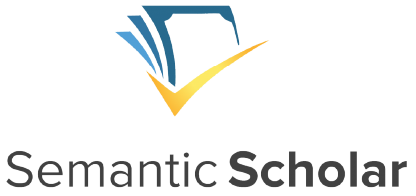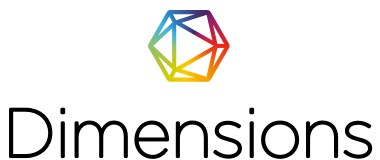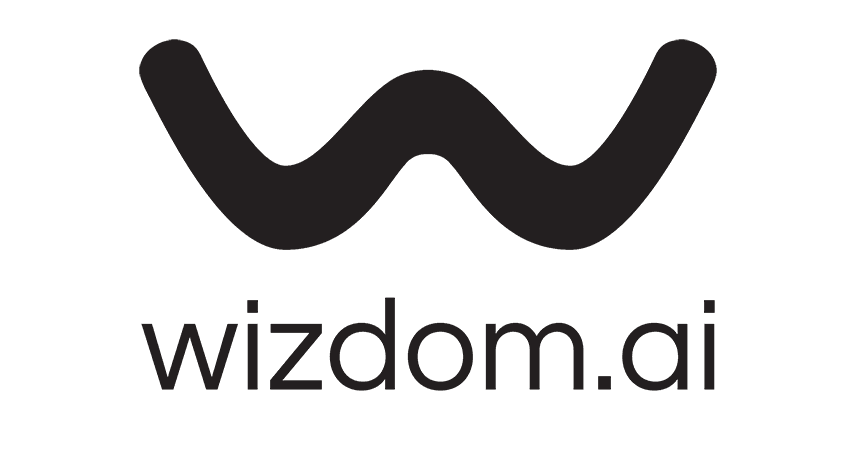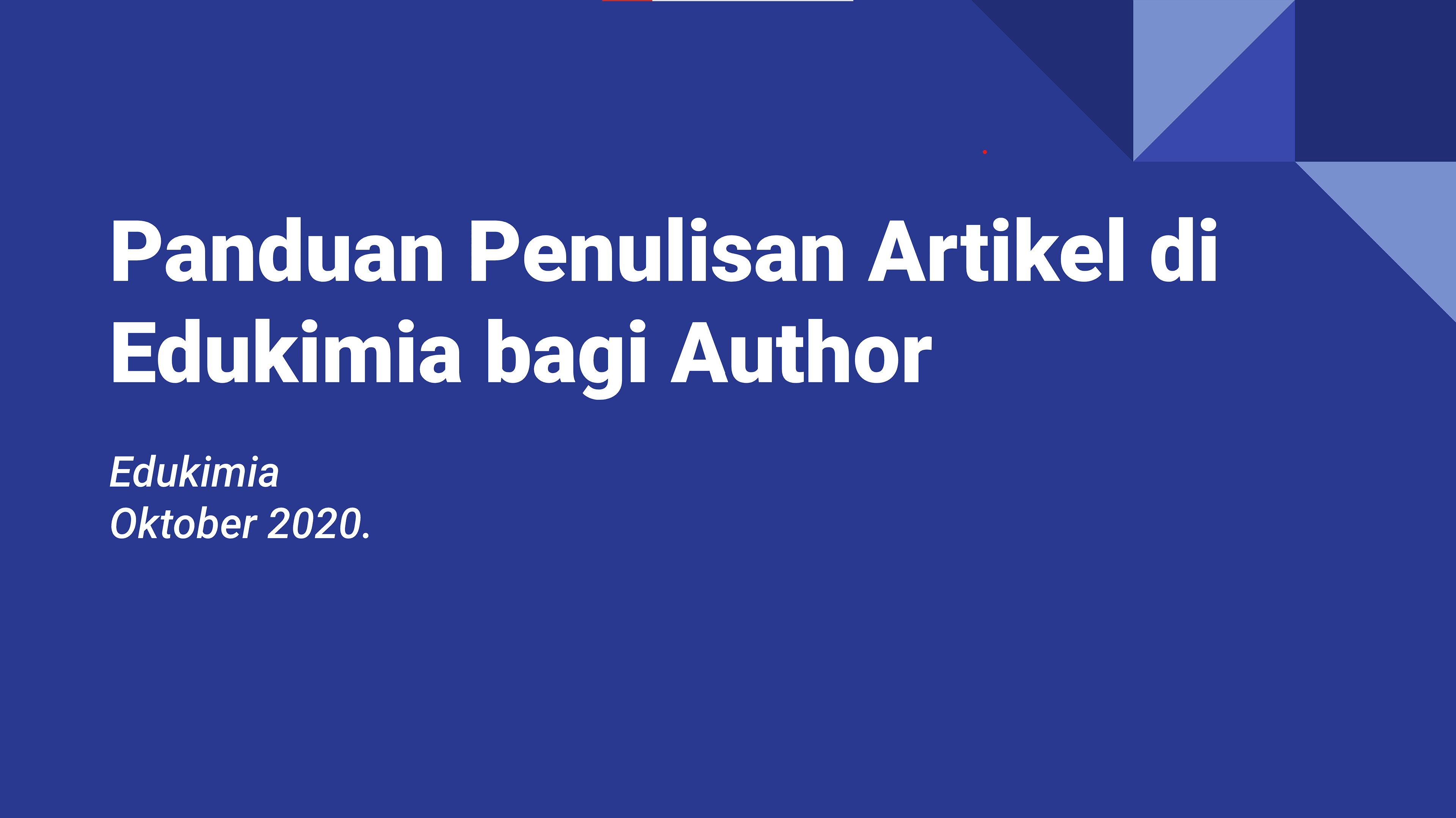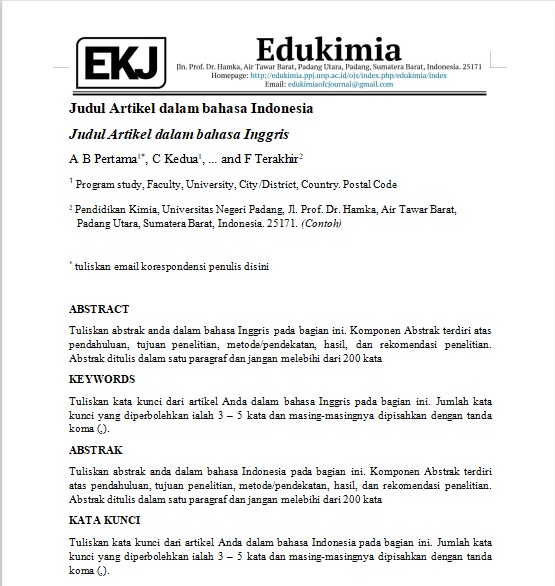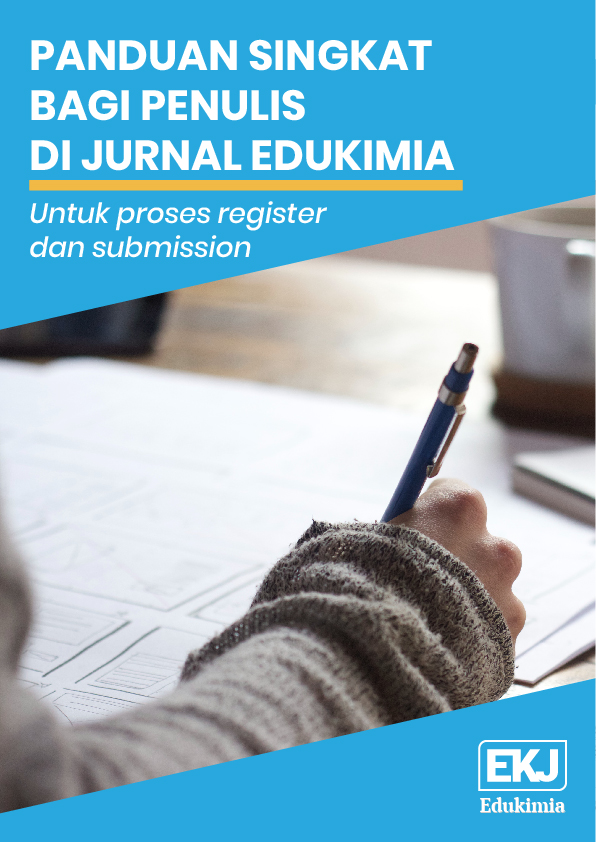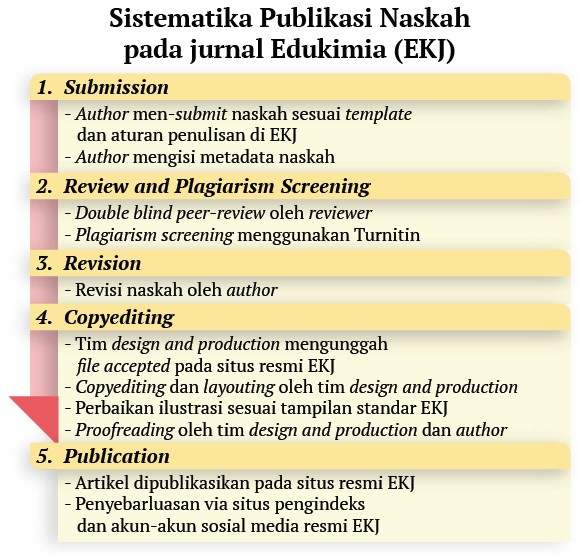The Development of E-Instrument to Test Students Mental Models on Electrolyte and Non-Electrolyte Solutions
Article Metrics
The abstract has been viewed for 330 times.The full pdf article has been downloaded for 120 times.
Abstract
Keywords
Full Text:
05_287_EKJ 3 (3)References
Guci SRF, Zainul R, Azhar M. Pengembangan Media Pembelajaran Berbasis Tiga Level Representasi Menggunakan Prezi Pada Materi Kesetimbangan Kimia Kelas Xi Sma/Ma. Universitas Negeri Padang; 2018.
Lubis DA, Maulina J, Pohan LA. Multimedia Development Using A Saintific Approach In Electrolyte Materials And Non Elektrolyte. J Chem Educ Sci. 2018;2(2):11–21.
Cahyana U, Afrizal, Safitri I. Development of Mobile Learning Application Based on Sociotechnology Approaches in Electrolyte and Nonelectrolyte Solutions. In: Proceedings of the International Joint Conference on Arts and Humanities (IJCAH 2020). 2020. p. 120–7.
Hanafy MS. Konsep dan Pembelajaran. Lentera Pendidik [Internet]. 2014;17(1):66–79.
Parlan P, Zulaihah B, Su’Aidy M, Dasna IW. Effects of the metacognitive learning strategy on students’ metacognitive knowledge and achievements in electrolyte and non-electrolyte solution. In: AIP Conference Proceedings. 2020.
Yoni AAS, Suja IW, Karyasa IW. Profil Model Mental Siswa Sma Kelas X Tentang Konsep-Konsep Dasar Kimia Pada Kurikulum Sains Smp. J Pendidik Kim Indones. 2019;2(2):64.
Handayanti Y, Setiabudi A, Nahadi N. Analisis profil model mental siswa SMA pada materi laju reaksi. J Penelit dan Pembelajaran IPA. 2015;1(1):107–22.
Islami AV, Sunni MA, Mataram UT. Pemetaan Model Mental Mahasiswa Pada Mata Kuliah Fisika. J Edukasi dan Sains. 2019;1(2):366–74.
Laliyo ARL. Model Mental Siswa dalam Memahami Perubahan Wujud Zat. J Penelit Dan Pendidik [Internet]. 2011;8(1):1–12.
Supriadi S, Ibnu S, Yahmin Y. Analisis Model Mental Mahasiswa Pendidikan Kimia Dalam Memahami Berbagai Jenis Reaksi Kimia. J Pijar Mipa. 2018;13(1):1.
Suari NNJ. Profil Model Mental Siswa Tentang Larutan Elektrolit Dan Nonelektrolit. J Pendidik Kim Indones. 2019;2(2):59.
Matondang Z. Validitas dan reliabilitas suatu instrumen penelitian. J tabularasa. 2009;6(1):87–97.
Seruni R, Munawaoh S, Kurniadewi F, Nurjayadi M. Pengembangan Modul Elektronik (E-Module) Biokimia Pada Materi Metabolisme Lipid Menggunakan Flip Pdf Professional. JTK (Jurnal Tadris Kim. 2019;4(1):48–56.
Aini DFN, Sulistyani N. Pengembangan Instrumen Penilaian E-Quiz (Electronic Quiz) Matematika Berbasis HOTS (Higher of Order Thinking Skills) untuk Kelas V Sekolah Dasar. Edumaspul J Pendidik. 2019;3(2):1–10.
Creswell JW. Educational research: Planning, conducting, and evaluating quantitative and qualitative research. Vol. 4, Educational Research. New York: Pearson; 2012. 673 p.
Thiagarajan S, Semmel D, Semmel M. Instructional development for training teachers of exceptional children: A sourcebook. J Sch Psychol. 1976;14(1):75.
Sugiyono. Metode Penelitian Pendidikan Pendekatan Kuantitatif, Kualitatif dan RnD. Bandung: Penerbiat ALFABETA; 2017. 148 p.
Refbacks
- There are currently no refbacks.

.jpg)


